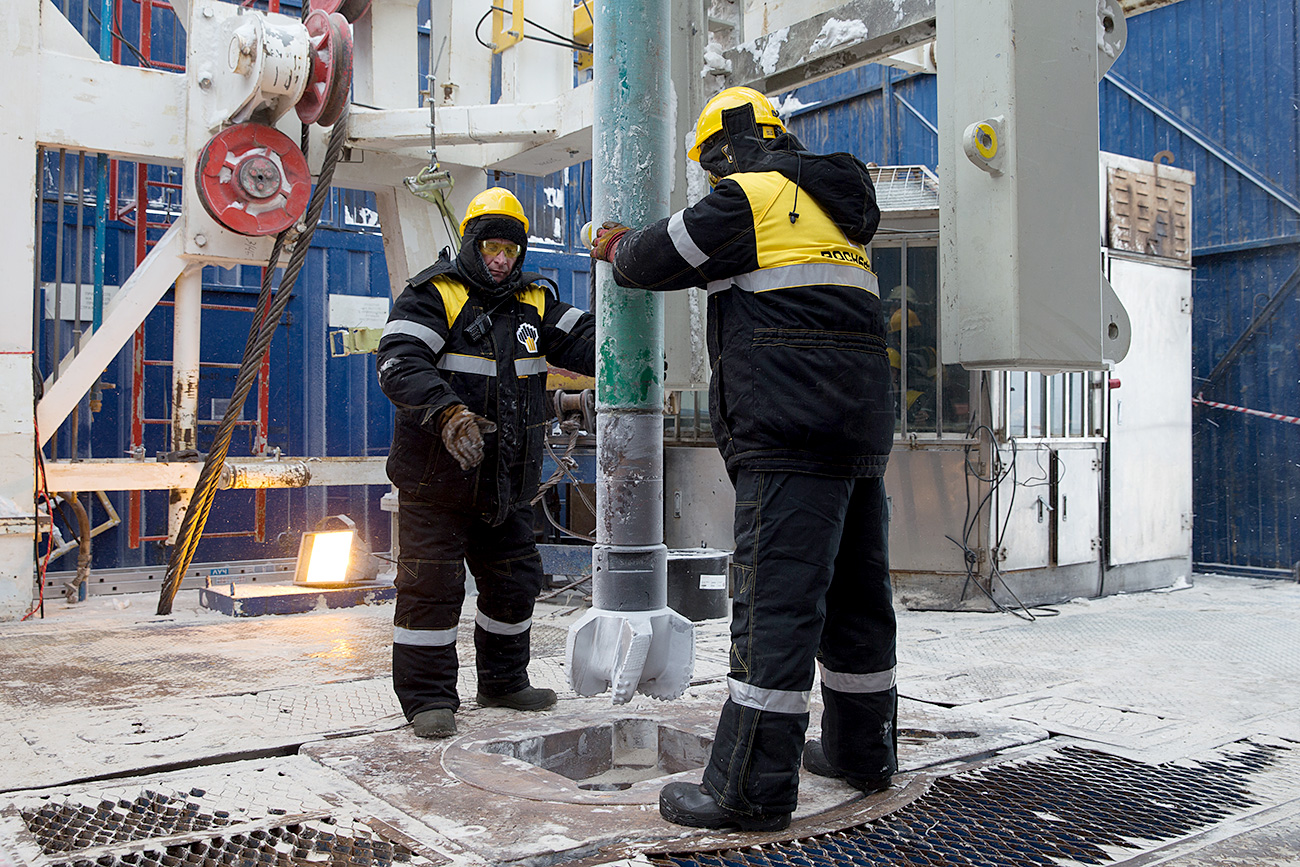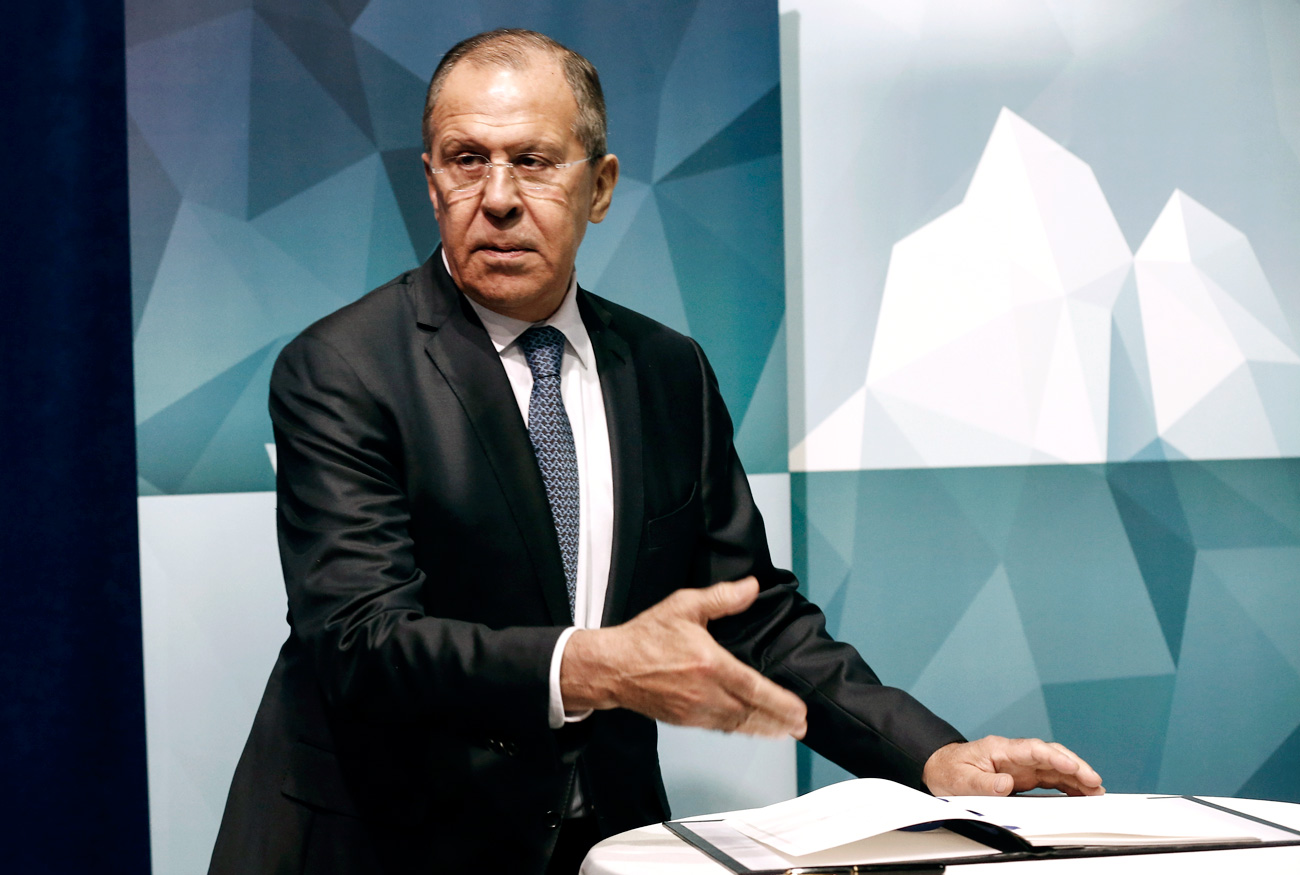Will a vast new Russian Arctic offshore oil field impact global prices

Personnel of Rosneft oil giant during the launch of drilling of the Tsentralno-Olginskaya well, the northernmost well on the Russian Arctic shelf.
RIA NovostiRosneft has discovered the first major oil field on the Eastern Arctic shelf, and it could eventually be the region's largest in terms of oil production. Analysts predict that the shelf will be providing 20-30 percent of all Russian oil by the year 2050, and the oil company shares these high hopes.
"It is evidently a stroke of luck and a great success, albeit a result of the enormous work done by geologists and drillers," said Mikhail Leontyev, Rosneft’s official spokesman.
The pace of development on the shelf has been impressive. The company embarked on drilling in April 2017 immediately after a video link with Russian President Vladimir Putin, who described the work as the creation of "a whole oil and gas province, which, even according to preliminary data, holds millions of tons."
Industry experts say that production is set to begin in 2020-2021, reported the radio station, Kommersant FM. The main question now is the correlation between cost and supply. There is a long-term trend of declining prices on global oil markets, and it is not clear how Russia's Arctic "success story" is going to fit into this scenario.
Expensive oil
The oil field was discovered while drilling the northernmost well in the Russian sector of the Arctic shelf: Tsentralno-Olginskaya-1 in Khatanga Bay in the Laptev Sea. As of today, Rosneft has 28 license areas on the shelf, with total estimated reserves of 34 billion tons of oil. This is 80 percent of the total number of areas belonging to Russian companies.
A fierce battle is underway to tap the underground resources in this area of the shelf. Three years ago geological prospecting of just one well was estimated to cost $200 million because there was no infrastructure and the navigation season in the area lasts no more than two months. Despite sanctions imposed by Western countries, Rosneft plans to invest around $8.4 billion with partners over the next five years.
Extracting the oil, however, promises to be quite expensive, said Evgeny Nadorshin, chief economist at PF Capital consulting. "All these Arctic projects [along with some of those by Surgutneftegaz, for example - RBTH] cannot be considered profitable. Undoubtedly, it has potential, but it’s a potential that lies far beyond the foreseeable horizon."
Unrealistic scenarios
Global oil prices have nose-dived under the impact of a series of factors: large inventories in the U.S., intensive activity by American drillers, and rising output in Libya, which is not constrained by an OPEC deal to limit production.
Oil prices have been slipping for four weeks in a row, and work on the Arctic shelf will hardly turn around the capricious market, either immediately or by the start of production, said Vladimir Bragin, the director for the analysis of financial markets and macroeconomy at Alfa Capital Management.
"It will fundamentally have no effect for the simple reason that we’ve been producing in other places, and a little more cheaply. The issue is a different one – what’s going to be the cost of transportation, extraction, storage and so on? In the grand scheme of things, in order to extract this kind of oil, prices must be high. And for them to be high it’s necessary for other fields to be unable to meet existing demand," Bragin said.
There’s no oil shortage at the moment, and the conditions for financing new fields are not at their most favorable, said Andrei Kochetkov, analyst at the company, Otkritie Broker. Due to low global prices Rosneft has high debt, and restrictions on external financing remain.
"Consequently, this field will prove very useful in the fairly distant future when the market begins to experience a shortage," Bragin said.
What’s more, the extension of the deal with OPEC to limit production should not be forgotten, although its implementation now looks fairly unrealistic, Nadorshin noted. After the first deal was concluded last year, industry representatives began to speak of so-called "volume manipulation."
Companies are manipulating production and export indices to such an extent that they will probably be facing even more questions in the second half of this year than following the first agreement.
"Discipline in the implementation of the agreement will probably decline sharply in OPEC in the second half of the year. Thus, it is possible that the volume of non-implementation of the agreement will more than match anything that’s planned to be extracted in the Arctic," Nadorshin concluded.
Read more: Russia’s Arctic ambitions to be fuelled by new combat icebreakers>>>
If using any of Russia Beyond's content, partly or in full, always provide an active hyperlink to the original material.
Subscribe
to our newsletter!
Get the week's best stories straight to your inbox
